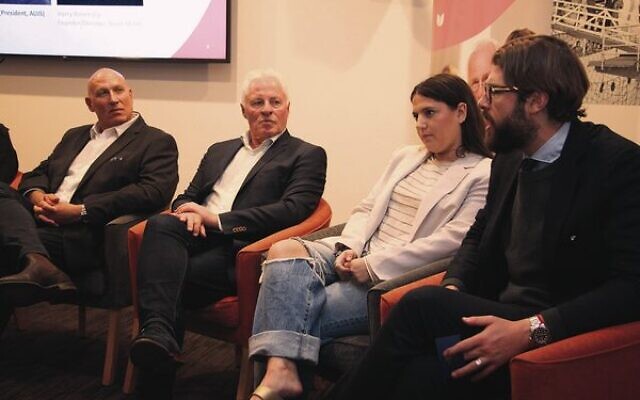Panel focuses on supporting kids
JewishCare hosted a panel event to discuss how best to support kids to respond to antisemitism.
A five-member panel tackled the timely topic of how to support kids to cope and respond to antisemitism, at an event last Thursday at JewishCare.
NSW Jewish Board of Deputies (JBD) head of community programs, Michael Gencher, noted there has been a 50 per cent increase in reported antisemitic incidents in NSW schools, compared to last year.
“And since we (JBD) opened an incident reporting portal last year, the floodgates have opened,” Gencher said, but added it is likely many incidents remain unreported.
“So if there’s one message I have tonight, it is the need to find a safe way of reporting incidents – because if we don’t know, we can’t act.”
Courage to Care CEO Ed St John said, “We run workshops at schools on the importance of being an upstander when encountering discrimination, so if you think our program will benefit your school, call us.”
He added that a strategy Courage to Care emphasises is “to show humanity and empathy by supporting the target of discrimination – it can be as simple as asking if they are alright, which can be profoundly impactful”.
Consultant psychologist for the Sydney Jewish Museum, Kim Slender, said if a child is suffering because they have experienced antisemitism, parents should be aware of possible signs like a drop in school attendance, a loss of appetite, or trouble sleeping.
“Your job is to tune into your child … have conversations … and think about ways to help them feel empowered,” she said.
The panel also included AUJS president Alissa Foster and Youth HEAR founder Harry Rosen.
Foster said many people at university campuses have never met a Jewish person before, and a small but loud, portion may go on to make antisemitic comments.
“The vast majority of the time, those comments come from a place of ignorance, and the way to combat that is by explaining your own personal experience to them.”


comments